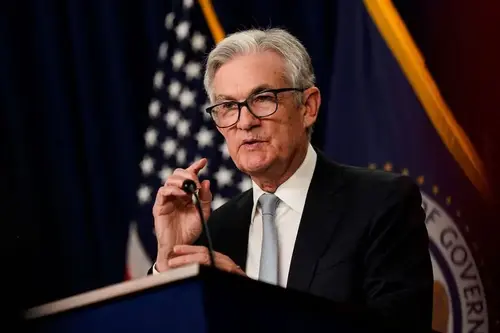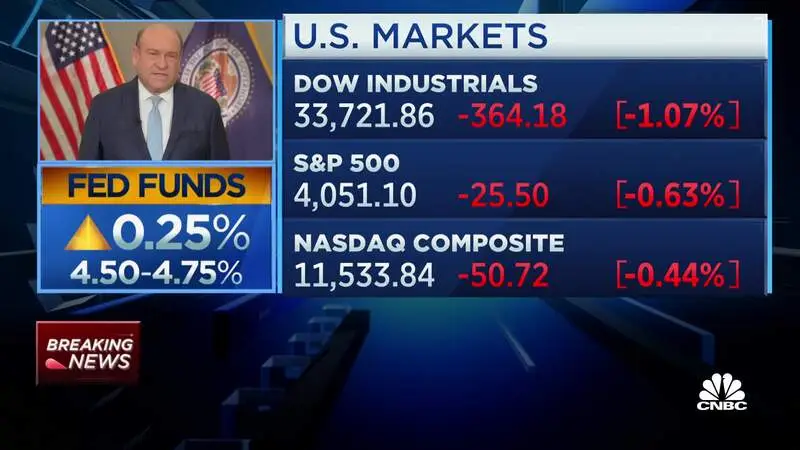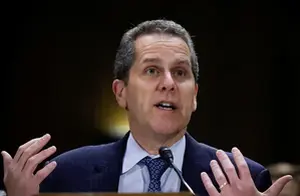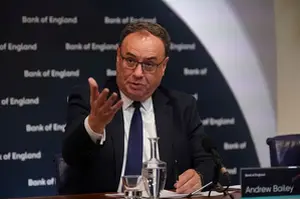
Fed raises rates a quarter point, expects 'ongoing' increases

The Federal Reserve on Wednesday raised its benchmark interest rate by a quarter percentage point and gave little indication that it is nearing the end of this hiking cycle.
Aligning with market expectations, the rate-setting Federal Open Market Committee boosted the federal funds rate by 0.25 percentage point. That takes it to a target range of 4.5%-4.75%, the highest since October 2007.
The move marked the eighth increase in a process that began in March 2022. By itself, the funds rate sets what banks charge each other for overnight borrowing, but it also spills through to many consumer debt products.
The Fed is targeting the hikes to bring down inflation that, despite recent signs of slowing, is still running near its highest level since the early 1980s.
The post-meeting statement noted that inflation "has eased somewhat but remains elevated," a tweak on previous language.
Markets, however, were looking to this week's meeting for signs that the Fed would be ending the rate increases soon. But the statement provided no such signals. At first, stocks fell in the wake of the announcement, with the Dow Jones Industrial Average tumbling more than 300 points.
The document included language noting that the FOMC still sees the need for "ongoing increases in the target range." Market participants had been hoping for some softening of the phrase, but the statement, approved unanimously, kept it intact.
The statement did alter one part when describing what will determine the future policy path.
Officials said they would determine the "extent" of future rate increases based on factors such as the effects so far of the rate hikes, the lags in which policy has an impact, and developments in financial conditions and the economy. Previously, the statement said it would use those factors to determine the "pace" of future hikes, a possible nod that the committee sees an end to the increases somewhere, or at least a continuation of smaller moves ahead.
In 2022, the Fed approved four consecutive 0.75 percentage point moves before going to a smaller 0.5 percentage point increase in December. In recent public statements, multiple officials said they think the Fed at least can scale back on the size of the increases, without signaling when they could end.
While it was raising its benchmark rate, the committee characterized economic growth as "modest" though it noted only that unemployment "has remained low." The latest job market assessment omitted previous language that employment gains have been "robust."
Otherwise, the statement remained intact from previous messages as the Fed continues its efforts to arrest inflation.
Fed policy is thought to work on a lag – when the central bank raises rates, it takes time for the economy to adjust to tighter controls on money.
This particular round of inflation started due to Covid-related factors such as clogged supply chains and surging demand for goods over services. The war in Ukraine aggravated rising gas prices, while unprecedented fiscal and monetary stimulus fueled rising costs across a variety of goods and services.
Food prices have risen more than 10% over the past year. Egg prices alone have soared 60%, butter is up more than 31% and lettuce has jumped 25%, according to Labor Department data through December. Gas prices were ticking lower towards the end of 2022 but have popped higher in recent days, hitting $3.50 a gallon nationally for an increase of about 30 cents over the past month, according to AAA.
Fed officials have remained resolute about tackling inflation, though they have said recent numbers show pressures could be easing. The consumer price index declined 0.1% in December on a monthly basis and is up 6.5% from a year ago – down from the peak of 9% last summer but still well above where the Fed feels comfortable.
Along with the rate hikes, the Fed has been reducing the holdings in its bond portfolio. That has resulted in a reduction of about $445 billion since June, as the Fed has targeted a capped level of $95 billion in maturing bonds it is allowing to roll off each month rather than reinvest.
The balance sheet reduction has been the equivalent of about 2 percentage points of additional rate hikes, according to the San Francisco Fed. The balance sheet is still at more than $8.4 trillion.
Markets are watching for where the Fed will finally end the increases.
At the December FOMC meeting, committee members indicated they see the "terminal rate," or point where the Fed thinks policy is sufficiently restrictive, as 5.1%. Markets are betting that number is closer to 4.75%, and they expect the Fed to start cutting rates later this year, after one more quarter-point increase in March.
Stocks rallied to start 2023 as investors anticipated a less restrictive Fed.
Source: https://www.cnbc.com/2023/02/01/fed-rate-decision-february-2023-quarter-point-hike.html






